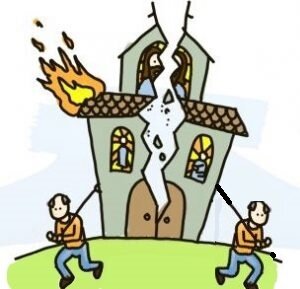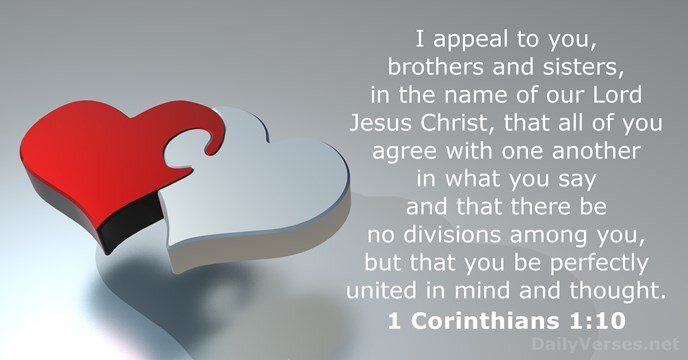Corinth, according to the Book of Acts, was one of the more successful of Paul’s churches and yet the picture that St. Paul gives us today is far from rosy:
'It has been reported to me by Chloe’s people that there are quarrels among you, my brothers and sisters'.
These quarrels appear to have arisen from the Church splitting into factions.
The cult of personality has turned the heads of those early Christians, not only away from the central message of the cross but also away from the work they are called to do in proclaiming the gospel.
Baptism has become an exclusive club whereby one belongs to the person who baptises you, rather than the sign of God’s grace.
The Corinthians were moving further and further away from the message of the cross itself:
Christ was crucified,
a shameful death,
'foolishness to those who are perishing',
so that all might be reconciled,
brought back to the Father
revealing the depths of the Father’s love seen in Jesus' obedience.
And what might appear foolish to the rest of the world is what we as Christians are baptised into – the suffering of the cross, for without the suffering of the cross then Christ could not have risen.
The message of the gospel is not one of division, but of reconciliation.
Our Lord died on the cross for the sins of the world, our sins, yours and mine. In our baptism we are united in his life, his death and his resurrection too.
As baptised Christians, we are called into unity.
There are, of course, many different views across the Christian world on exactly what unity means. And unity can never be equated with uniformity.
Humanity is by nature extremely diverse and this is the same within the Christian Church. As God’s people, however, we are united by that very humanity, as God created us all in is own image. It is that which unites us all.
Divisions within our church, painful though they may be, are human divisions and they will be worked through in God’s time as they have been down through the ages.
If we really are serious about unity, then we have to be prepared to turn again and again to that cross, 'foolishness to those who are perishing but to those who are being saved, the power of God' in a world that is hungry for healing.
There are bound to be different viewpoints, different ways of doing things, different traditions, but once opinion, practice and traditions become entrenched, as they were doing in Corinth, then we are in danger of becoming further removed from that cross.
So let us pray that in all our doings, universally, locally and individually, we may respond whole-heartedly to St Paul’s plea:






